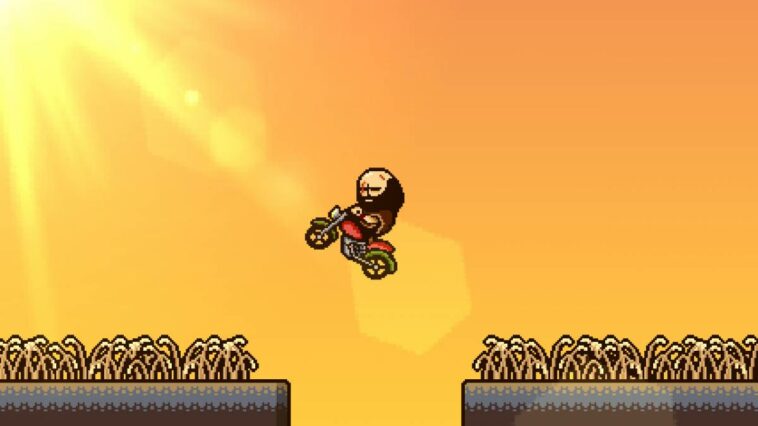It was the summer of 2015 when I discovered LISA: The Painful RPG. I’d only just gotten into PC gaming and was simply browsing around Steam, seeing if I could find anything weird looking to pass the time. As a part of Midweek Madness, I saw that there was a game called LISA on sale for five bucks. I checked out the pretty damn great trailer and figured it looked worth a shot. The game’s page described it as a “quirky side scrolling RPG set in a post-apocalyptic wasteland,” but a more accurate description might be “Earthbound written by Quentin Tarantino after a 48 hour binge of Fist of the North Star, Children of Men, and meth.”
Turns out, LISA: The Painful RPG was not just one of the strangest games I’d ever played, but also one of gaming’s strongest and most powerful stories about violence, trying to be a hero, and the effects of abuse and trauma. And it does all that while being funnier than most comedies.
The premise is both simple and complicated: you play as Brad Armstrong, a Karate teacher with a seriously dark past, who gets swept up in the White Flash, along with the rest of humanity. The White Flash is a mysterious event that makes every woman in existence disappear. The men, seeing no future for humanity, have given up. Most simply try to survive in the harsh world of Olathe, while others embrace cross dressing to entertain other men.
Then there’s a drug called Joy. Joy makes the user feel nothing at all. Only, extended use turns people into literal monsters, twisted abominations of their former selves. It makes them focus on one thing intensely. While for some it’s simply existing peacefully in a location they enjoyed as a regular human, for others, it means they become vicious and homicidal.
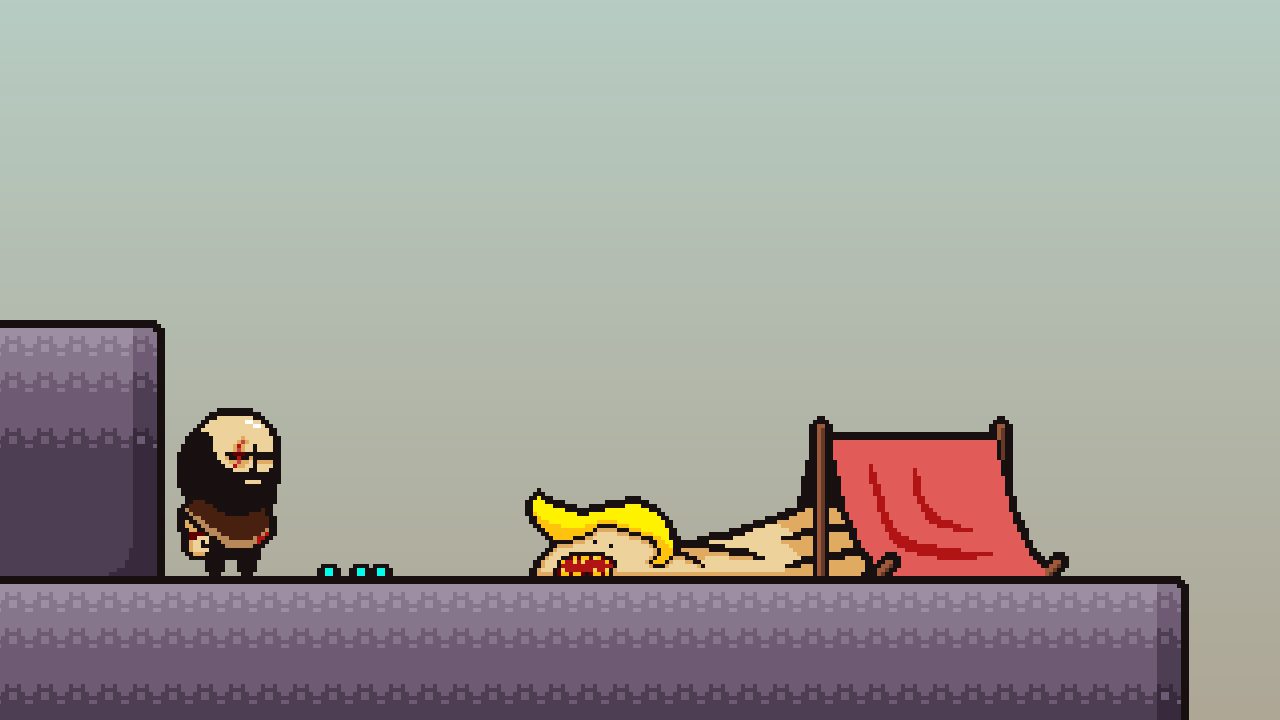
It turns out that, because of the circumstances humanity finds itself in, a lot of people around Olathe want to feel nothing, so Joy use and abuse is rampant. Brad is one such man. Burdened by his past (which I won’t spoil, but is so pitch black that it’s borderline unfit to print), he wastes his days using Joy with some of his friends from before the Flash, until one day he comes across a baby girl. He has no idea where she came from, but he sees an opportunity and decides to name her Buddy, raising her in secret from the rest of the world until she’s a preteen. At that time, members of the Warlord Rando’s army arrive, taking Buddy for their own nefarious purposes, most of which involve procreating to save the human race. The word is out. Brad pursues Buddy. So does everyone else.
It’s a strange, unique setup, and at first glance, comes across as no more than mere misery porn. And make no mistake: this game is dark. Really dark. Dark in a way that you feel in your soul, where you not only witness terrible things, but come to understand why they happen, and maybe that some of them are even justified. But the game isn’t just misery. It’s also hilarious, using its strange set up and premise to introduce the player to the wildly, anarchically unique world of Olathe and all of its mysterious and weird inhabitants.
This is reflected in the abundance of party members available for you to recruit. Anyone who has played Earthbound knows that this game took direct inspiration from it with its graphical style. But it’s more than that- LISA: The Painful RPG is a fully fledged, old school turn based JRPG with a huge amount of party customization. Terry Hintz is the first of many strange dudes you meet- he serves as the game’s walking tutorial, introducing you to the basics of combat while also being completely, utterly useless. It isn’t long though, before you have a full party of four, and along the way you pick up more and more people who want to join Brad in his crusade, all for their own reasons.
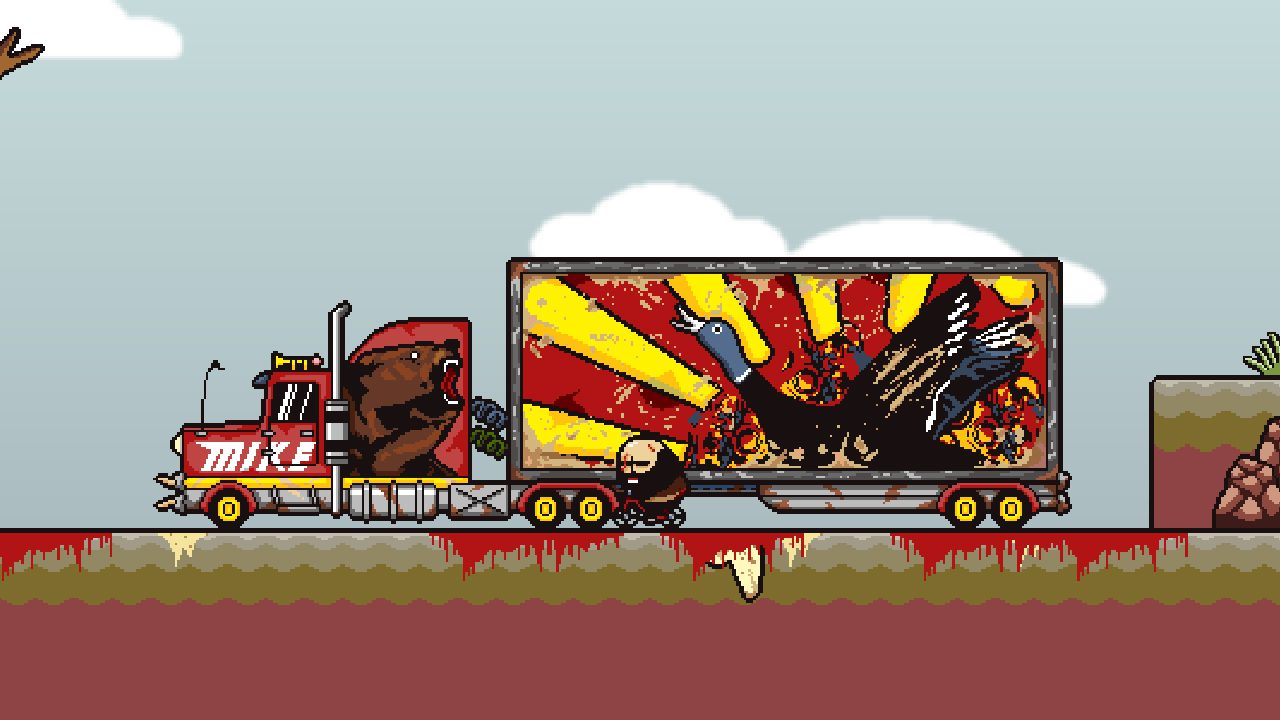
The game probably would have won me over for its storytelling alone, but developer Dingaling really went the extra mile with the party system. There are 30 of these guys to recruit, all of them unique in play style and character. Some are mandatory, while many are optional, unlockable through the game’s many side quests. There’s a guy named Nern Guan you meet early on who can tell boring stories to enemies and put them to sleep, then shoot them with laser beams from his fingers. Another member is named Geese Thompson. He used to be a serial killer and now pecks his enemies to death with his plastic beak. One of my personal favorites is Harvey Alibastor, a fish person (because of course there are fish people) who doubles as an attorney. Some of his attack names include Slander, Wrongful Accusation, Restraining Order, and Legal Jargon. He also uses an uzi.
You’re going to need these party members, though. The combat is already tough, especially in the beginning where basic encounters can wipe out an unprepared team. This is in large part due to the game’s reliance on status effects- there are a ton of them, and the enemy can and will use them against you. There are traditional effects such as poisoning and stun, as well as other more outlandish ones like crying (lowers your hit rate),hungover (lowers certain stats, buffing your crit rate), and extorted (which double the porno mags- this game’s currency- you gain upon victory). Then there are the boss fights. Boss fights late in the game can permanently kill a party member, making you lose them forever. There are also story events that can cost you just as dearly.
One of the first choices you are given is to give up all of your possessions or give up the aforementioned Hint Master Terry Hintz. It seems an easy one. After all, Terry does almost no damage and he shows no sign of bucking that trend. He offers no more hints of any use past the opening area. Giving up your porno mags and recovery items seems like a pretty tall price for keeping around what is essentially dead weight. I gave him up without a second thought, and I’m sure many others did too. It seemed like nothing. Only that decision comes back to bite you about midway through the game. They didn’t kill Terry. They trained him. They made him tough. And they make you confront your earlier choice of giving him up.
This is one of many examples of how the game dissects the kind of storytelling it seemingly belongs to. Moreso now than ever, gaming seems to adore stories of dads protecting their kids or saving them in some way (Heavy Rain, God of War, The Last of Us, The Walking Dead Season 1 just to name a few). On the surface, this is very much like those other stories- after all, Brad’s single driving force is to save Buddy from the harm and abuse others would inflict upon her. Instead, though, it pulls a Spec Ops: The Line and completely pulls the rug out from under the player, making them confront this character who believes the terrible things they do are okay because they’re justified.
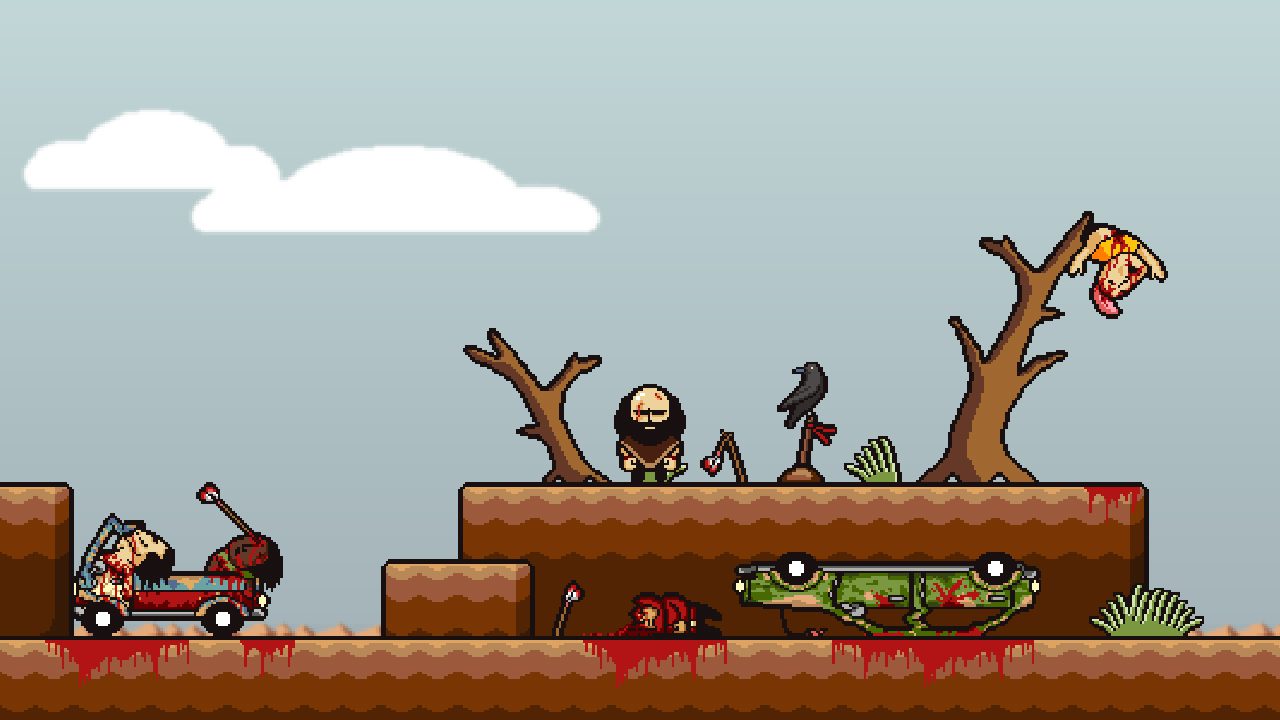
In yet another choice, one of the game’s main antagonists Buzzo holds Buddy at machete point and offers you a choice: give up all your porno mags or Buddy loses a nipple. From a pure gameplay standpoint, choosing not to give up your mags doesn’t actually affect much. But this is the first instance of the game pointing out that Brad is ultimately doing this for selfish reasons because, though I’m ashamed to admit it, I didn’t give up my mags. This is a huge turning point in the story, and later on, even Buddy begins to realize that Brad is not the good guy.
The ending sequence drives home this point perfectly. Without giving too much away, Brad confronts a very literal figure from his past, he is abandoned, and finally meets with Rando’s army, where he has to fight his way to Buddy, who has already disowned him for his many horrific acts throughout the story. What’s perhaps even worse is that she starts suffering from severe Stockholm Syndrome, explaining to Brad that maybe the people pursuing her are actually right and that she should be used to procreate. It’s a horrifying, bleak concept, and the note that the game ends on will probably make you feel like you just accidentally drank a glass of Drano.
The real miracle, though, is that the game manages to balance its truly dark themes about humanity with its humor without the two ever colliding or feeling at odds. Not only is this because many of its jokes are genuinely funny, but because of the sound track. While I think Hotline Miami may have my all-time favorite indie sound track, LISA is a very close second, and what’s more impressive is that the songs are all entirely original. Each tune is entirely distinct from the next- some of them are just plain old JRPG goodness, some are really intense, some are insanely catchy, some are emotional, some are the weirdest thing you will ever hear, and others are just downright terrifying. Every song in the game perfectly complements the scene it’s in, and goes a long, long way to making the many tones work well and feel like part of a cohesive whole.
I would be remiss to not touch on some of the sections that turn into full on horror. There’s a section where you discover a town of people who have been turned into disturbing white ghouls with veins on the outside. The aforementioned Joy mutants present much of the game’s body horror, with them being twisted versions of the people they once were, and more often than not, homicidal. Then there’s a whole sequence where you have to take on Wally, a fast food mascot who is worshiped by a cult for his delicious food and impeccable service (“large fries, brotha- large fries”). However, when you finally meet Wally, he screams that he just wants to die and begins attacking you. It’s the stuff of nightmares.
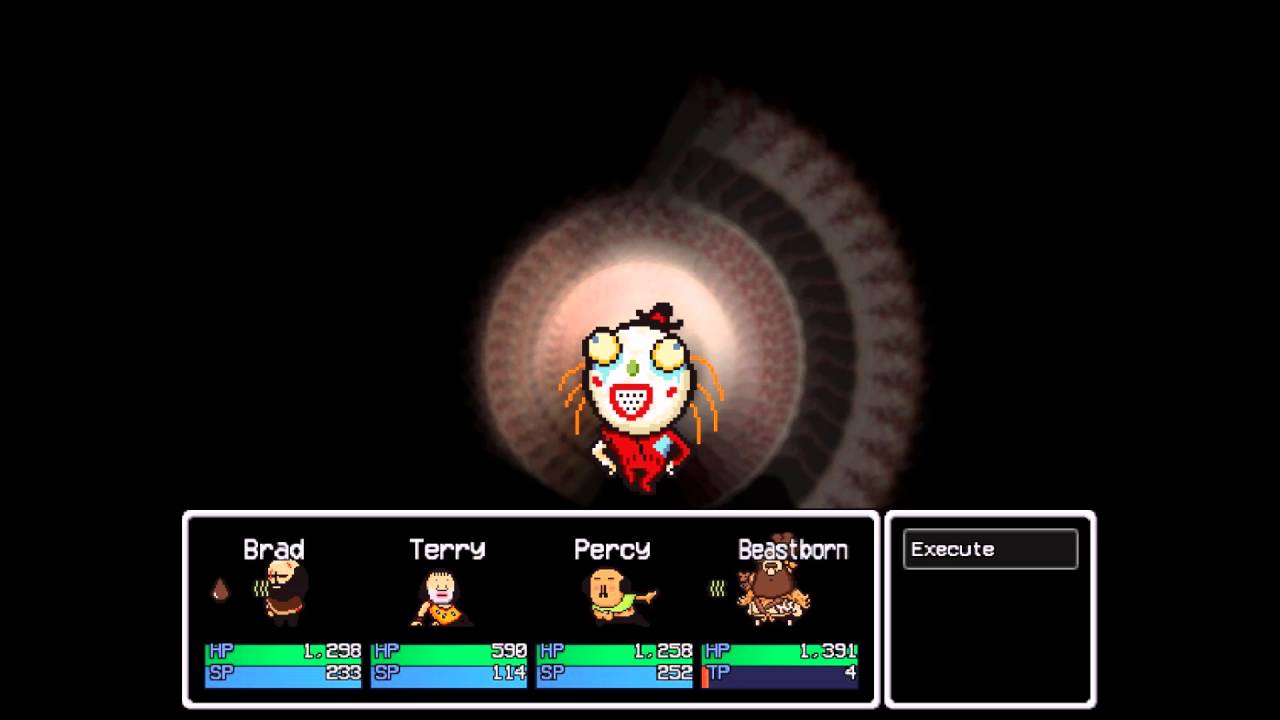
LISA: The Painful RPG is not an easy game in any sense. The difficulty, even when playing on normal, is pretty high, with it often feeling unfair, particularly in the many choices Brad is forced to make. But it’s also difficult in the sense of its story- despite its humor, it paints a painfully bleak portrait of humanity at its absolute worst. It shows human desperation not just from the world who all want a piece of the last female known to live, but also from its own protagonist, a broken man who dreams of being a hero but never will be because of the things he’s done and the things he does throughout the story. There is a brilliance to the writing I’ve rarely seen in novels or movies, let alone video games- it slowly pieces out its story and background so that you slowly come to understand how its cast’s imminent destruction is not only inevitable, but set in stone right from the very beginning.
I’ll wrap up with one of my favorite anecdotes that I feel summarizes the tone the game goes for- about a third of the way through the game, you come across a house belonging to a man named Widdly 2 Diddly. Widdly 2 Diddly is dancing to a very strange but kind of catchy song while lights flash everywhere. He also wears a fish bowl on his head. There’s a stack of porno mags in the corner he’s blocking, his own personal bank of riches. There’s not much you can do. Later on, though, you can return to Widdly 2 Diddly’s house to find that he’s hung himself.
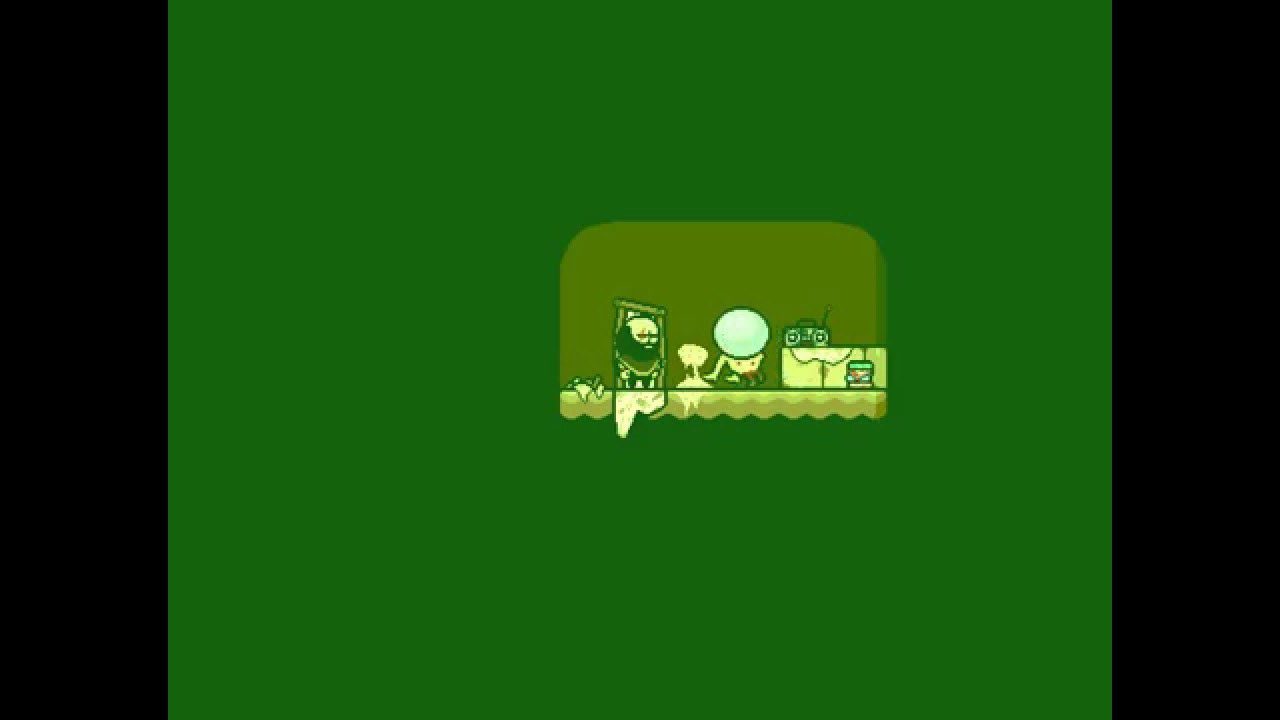
There’s also DLC called LISA: The Joyful that is a must play if you enjoy the main game. It serves as a true conclusion to the overall saga (there’s actually a Yume Nikki style first game in the series appropriately called LISA: The First), and also fleshes out a lot more back story that goes a long way to making you understand the warped and traumatized cast in the main game. But the game itself ends on a completely satisfying but emotionally draining note, and the DLC is not necessary to get that appreciation.
The game will make you laugh. It’ll more than likely make you cry. It’ll make you question every narrative you consume about heroes after playing it. It’ll make you feel like you’ve been beaten senseless and left in a disgusting alley.
And you need to play it.
Images courtesy of the game’s Steam Page.

